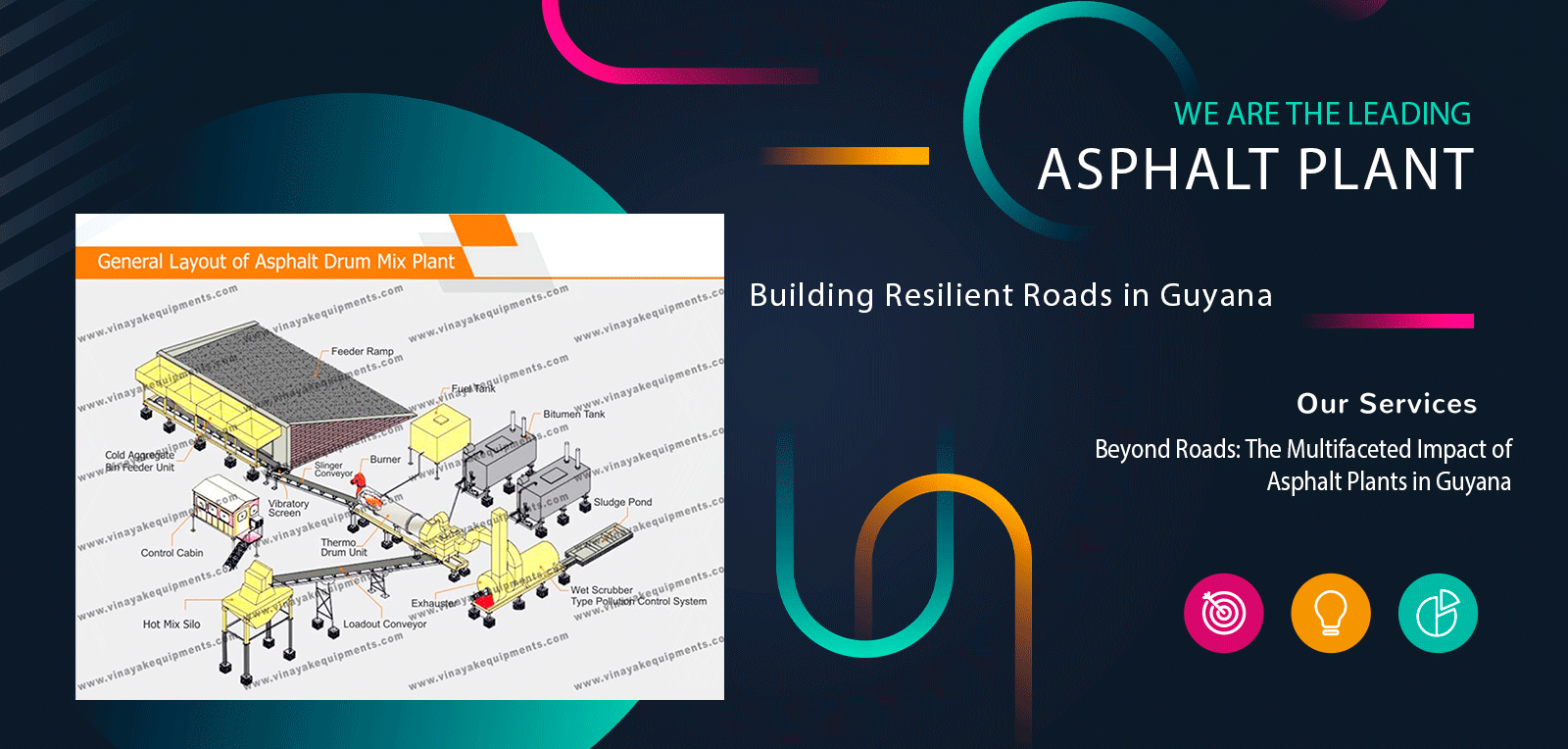 Email Us: sales@vinayakequipments.com
Email Us: sales@vinayakequipments.com  Call Us: +91 9879430770
Call Us: +91 9879430770
In Guyana, a country blessed with natural beauty and rich resources, the need for reliable roads and transportation networks has never been greater. As the nation embarks on a journey of modernization and economic growth, the role of Asphalt Plants becomes increasingly crucial. Asphalt Plants don’t just produce the material for roads; they pave the way for progress. In this blog, we’ll explore how these plants are transforming Guyana’s landscape and driving its development.

We are a manufacturer, supplier, and exporter of Asphalt Mixing Plant, Asphalt Batch Mix Plant, Asphalt Drum Mix Plant, Counterflow Asphalt Drum Mix Plant, and Mobile Drum Mix Plant in Guyana.
Common operations includes such as heating and drying aggregates, mixing them with bitumen, and controlling the temperature for optimal consistency. The plant also involves quality control measures to ensure the asphalt meets specifications.
Unique Geographical and Climatic Challenges: Guyana’s terrain is diverse, ranging from dense forests to coastal plains. Heavy rainfall and high temperatures demand durable roads.
Demand for Durable Roads : Urbanization is accelerating. Both cities and rural areas need reliable roads to connect communities and enable trade.
Government Policies and Infrastructure Goals: The government prioritizes infrastructure. Projects like the Linden-Lethem Road and hinterland roadways highlight the need for quality asphalt.
Economic Impact of Improved Roads: Better roads reduce transportation costs, attract investment, and improve access to education and healthcare.
Asphalt Plants are more than just facilities; they are engines of progress. In Guyana, these plants are vital for addressing infrastructure challenges and unlocking the nation’s potential. By embracing innovation and sustainability, Asphalt Plants can pave the way for a brighter, more connected future. By producing the high-quality asphalt essential for durable and reliable roads, they address the country's unique geographical and infrastructural challenges. These plants not only enable faster, cost-effective road construction but also create jobs, reduce transportation costs, and boost connectivity across rural and urban areas.
Vinayak Equipments Provides Asphalt Plant in Guyana including locations like Georgetown, Anna Regina, Bartica, Corriverton, Lethem, Linden, Mabaruma, Mahdia and New Amsterdam, Mahaica, Rose Hall, Parika, Triumph, Uitvlugt.
Contact Us today for more information, pricing, and consultation.